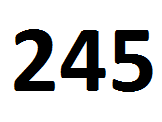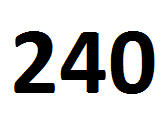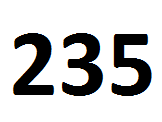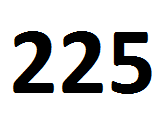The competition for residency spots is getting stiffer every year. Get unbiased advice from physicians, peers and medical school professors.
Over the last decade StudentDoc has developed tools to help medical students navigate the residency match process.
Explore your residency options
Identifying residency programs in which you would be interested requires networking. If you are looking for a popular specialty, like internal medicine or general surgery, there will likely be many programs in your geographic area of interest. Not all of them, however, will be a good match for your interests or temperament. The best way to find the right program for you is to sub-I at programs you are considering and next to talk to residents and fellow students familiar with the program.
Hospital rankings provide some insight into possible residency programs. Highly ranked hospitals often have well defined processes, excellent nursing and great ancillary services – all things that make life as a resident a lot easier.
Understanding the NRMP residency match process is not a trivial thing. While it is designed primarily with the student in mind, there are several potential pitfalls to avoid. In addition to the above linked article, the NRMP publishes explanatory PDFs on specific topics in the match, like how to make a rank-order list, how to couples match, and how the matching algorithm works.
A recent StudentDoc poll shows what factors applicants consider to be most important when making out their residency match list.
Complete the tasks needed to get into the medical or surgical specialty of your choice
Succeeding in medical school does not happen by magic. There are straightforward behaviors that improve your chances. We’ve compiled data from one medical school course showing exactly which behavior predicted the highest grades – can you guess what that behavior was based on the title of the post? Attendance and grades.
The three licensing exams you should take during medical school include USMLE step 1, USMLE step 2CK, and USMLE step 2CS. Step 1 and 2ck are similar in being multiple-choice, knowledge-based exams. Step 2cs, however, is quite different and tests your ability to take a good history, examine a patient, write a note, and come up with a differential diagnosis and follow up tests.
For a US medical student, Step 1 scores are arguably the single most important factor for getting residency interviews. Here are reviews of some popular USMLE prep courses. Our affiliate site, MomMD, also has posted an excellent and free USMLE practice exam.
Foreign medical graduates have a slightly different path to landing a residency, requiring you to follow the ECFMG guidelines. You will also likely take USMLE step 3 before starting a residency program.
Get advice from peers and profs
The medical student forum pulls advice from a wide variety of sources, including fellow medical students, residents, current and former medical school professors, and practicing physicians. We’ve also affiliated with MomMD, for advice from women physicians for medical students and residents om their doctor’s forum and specialty forums like the USMLE forum or the student loan forum with experts from companies that help students with these issues.
Competing for your desired residency spot
The trend lines get worse every year the NRMP publishes its match data. In 2010 37,000 registered for the match, and 21,749 matched to first year positions. That means 15,000 (!) applicants did not match in 2010! 8,800 unmatched applicants entered the scramble for just over 1,000 unfilled spots. And the numbers get worse every year (According to the NRMP’s document on the rebranded Scramble process called Supplemental Offer and Acceptance Program). To help you get an idea of whether you will be competitive for a particular specialty we’ve compiled match data into a searchable tool by factors like USMLE step 1 score, research experience and publications, AOA status, and whether you are applying as a U.S. senior medical student.
Given the competitive nature of finding a residency spot, many applicants are concerned if they have a problem with their record. Our affiliates at netdoc.com and mommd.com recently polled physician visitors about their academic record. A surprisingly high 45% have had some problem along the way, but still persevered. The moral of the story being don’t give up just because of one stumble. For the full report, see Bumps in the road of medical education.
Topics #match #medical school #nrmp #residency #step 2 ck #USMLE #usmle step 1 #usmle step 2






